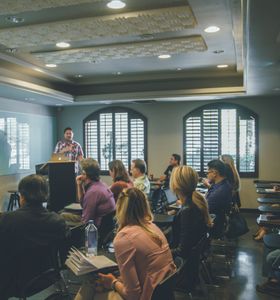
Last year, we looked at Citizens’ Assemblies (read that article here), this What is...? follows up the release of the research the article referred to. University College London Constitution Unit recently released the results of their three year research into public attitudes to democracy in the UK and their findings highlighted the level of dissatisfaction with the state of democracy in the UK. In general, project participants wanted:
The report noted that part of the lifeblood of democracy is authority responsiveness to public opinion and the system works better if people have confidence in it. The report finished by asking, ‘what should be done?’ The answers were not a surprise!
The commonly accepted version of a Citizens’ Assembly is a collection of citizens, randomly selected from the local population, learning about, deliberating on and making recommendations to elected officials in relation to local issues. The basic aim is to have a group of people, broadly representative of the gender, ethnicity and social class in the area. This Assembly is then given the time and resources necessary to discuss and reflect upon all arguments in order to reach a nuanced position on the issue
presented. This gives members of the public the opportunity to discuss local issues and solutions but also the chance to build an understanding of the trade-offs fundamental to bringing their recommendations to fruition.
Deeper thinking about how to shift the political discourse is needed, not only from politicians and the media but also the general public. Citizens’ Assembly South Tyneside - CAST - was launched because it was felt that the views of our community were ignored or bypassed by those in authority. Why not join us and together we can work towards community-driven, people-powered change?
Copyright © CAST 2025
All rights reserved - any unauthorised use of any of our branding will constitute an infringement of copyright.
